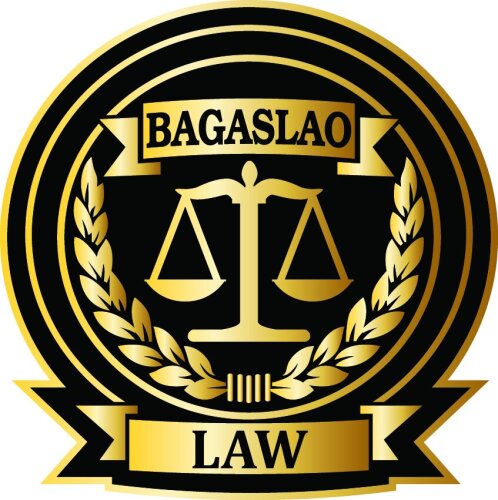Best Military Divorce Lawyers in Whitehorse
Share your needs with us, get contacted by law firms.
Free. Takes 2 min.
Free Guide to Hiring a Family Lawyer
List of the best lawyers in Whitehorse, Canada
About Military Divorce Law in Whitehorse, Canada
Military divorce law in Whitehorse, Canada involves a unique set of rules and considerations that differentiate it from civilian divorce proceedings. Whitehorse is located in the Yukon, a territory with distinct legal regulations. Members of the Canadian Armed Forces (CAF) stationed here or those who are residents and serving elsewhere face specific legal nuances when dissolving a marriage. These include the division of military pensions, custody arrangements, and the impact of deployment on proceedings.
Why You May Need a Lawyer
Seeking legal assistance in a military divorce can be critical due to the complex nature of military benefits, pensions, and spousal support calculations. Service members and their spouses may require a lawyer when handling the division of military pensions, navigating jurisdictional challenges due to postings, or dealing with family support in light of military obligations. Lawyers can also help ensure that the unique aspects of military life are adequately considered in custody and visitation arrangements.
Local Laws Overview
Military divorce in Whitehorse, Canada, involves both federal and territorial laws. Key federal legislation includes the Divorce Act, which applies uniformly across Canada, and specific military regulations related to pensions and familial support, such as the Canadian Forces Superannuation Act. In Yukon, like other territories, the division of property and support is handled according to local legislation, which may impact military families differently. Issues such as the valuation of a pension and considerations around mobile living arrangements due to military postings require careful navigation of both territorial and federal laws.
Frequently Asked Questions
How is a military pension divided in a divorce?
Military pensions are considered divisible assets under the law. The division is typically determined by the length of the marriage relative to the member's service time.
What happens if a service member is deployed during divorce proceedings?
If a service member is deployed, proceedings may be delayed or handled in absentia, depending on the circumstances and agreements between parties. Legal representation is crucial during such times.
How does relocation due to military postings affect custody arrangements?
Relocation can significantly impact custody arrangements. Courts typically prioritize the child's best interest, balancing stability against the realities of military life.
Can both spouses be from different provinces? How is jurisdiction determined?
Jurisdiction is typically determined by where the couple resides at the time of filing. Legal advice is important for navigating multi-jurisdictional issues.
What legal protections are available for military spouses in a divorce?
Military spouses have legal protections related to pension division and may be eligible for spousal support, considering the military lifestyle's unique impacts.
Are there differences in filing for divorce if both parties are military members?
The process remains similar, but additional considerations like joint housing and mutual military benefits might need specific legal counsel.
What role does the Canadian Forces’ Family Resource Centre play in a divorce?
The Family Resource Centre provides support and resources to families dealing with the stress of divorce, including counseling and referrals to legal professionals.
How is child support affected by military service?
Child support is calculated based on income, which includes military pay. Long deployments might influence the custody arrangement but not the support payments.
What is the role of a mediator in a military divorce?
A mediator can help resolve disputes amicably, potentially reducing the time and cost associated with contentious legal battles. They are particularly useful in balancing military obligations and family needs.
How does military housing impact divorce proceedings?
Military housing may present unique challenges during a divorce, as entitlement typically flows through the service member. Housing transitions need careful planning during a divorce.
Additional Resources
It's beneficial to contact the following resources for guidance: Canadian Forces Family Resource Centre, Department of National Defence Legal Assistance, and local legal aid services in Whitehorse. Additionally, the Law Society of Yukon offers resources for finding a qualified lawyer experienced in military divorce.
Next Steps
If you find yourself in need of legal assistance regarding a military divorce in Whitehorse, it’s important to begin by consulting a lawyer with experience in both family law and military regulations. Scheduling a consultation to discuss your situation can provide clarity and direction. Additionally, gathering necessary documents such as marriage certificates, military service records, and financial statements can expedite the legal process. Engaging with local support networks for military families can also offer valuable emotional and procedural support during this challenging time.
Lawzana helps you find the best lawyers and law firms in Whitehorse through a curated and pre-screened list of qualified legal professionals. Our platform offers rankings and detailed profiles of attorneys and law firms, allowing you to compare based on practice areas, including Military Divorce, experience, and client feedback.
Each profile includes a description of the firm's areas of practice, client reviews, team members and partners, year of establishment, spoken languages, office locations, contact information, social media presence, and any published articles or resources. Most firms on our platform speak English and are experienced in both local and international legal matters.
Get a quote from top-rated law firms in Whitehorse, Canada — quickly, securely, and without unnecessary hassle.
Disclaimer:
The information provided on this page is for general informational purposes only and does not constitute legal advice. While we strive to ensure the accuracy and relevance of the content, legal information may change over time, and interpretations of the law can vary. You should always consult with a qualified legal professional for advice specific to your situation.
We disclaim all liability for actions taken or not taken based on the content of this page. If you believe any information is incorrect or outdated, please contact us, and we will review and update it where appropriate.









